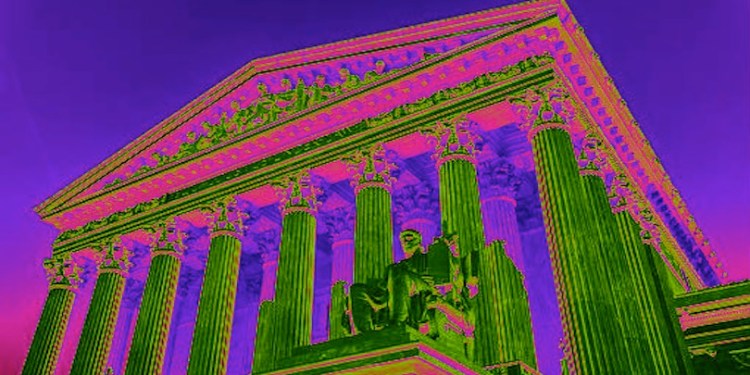In the aftermath of the charges filed against the centralized crypto exchange BitMEX, crypto marketing strategist Adam Cochran believes authorities can and will find ways to hold decentralized finance (DeFi) platforms accountable if they violate US regulations.
On October 1st, the U.S. Commodity Futures Trading Commission (CFTC) charged five BitMEX operating entities and its three founders: Arthur Hayes, Benjamin Delo, and Samuel Reed with violating multiple CFTC regulations. As the CFTC goes after BitMEX, the crypto community is now debating whether the authorities will come after DeFi as well.
In a tweetstorm, Adam Cochran, who is also the head of growth and strategy at privacy-centered search engine DuckDuckGo, believes that DeFi is not beyond the reach of US regulators. Cochran argues that while authorities can’t directly shut down decentralized protocols like Uniswap, they could come after the developers who hold the admin keys to the platform’s website.
“Now here, the crypto community will throw their arms up in a rallying cry ‘but you can’t shut down a contract.’
No, you can’t but DAO or no DAO you can find that developers with admin keys, users who create front-ends, companies hiring individuals to work on the protocol and others who enable or profit from the contract, to be in violation on the BSA (Bank Secrecy Act).”
Should that happen, Cochran says a large bulk of the exchange’s participants will stop using it, essentially killing the protocol.
“The take away here is that a protocol isn’t outside the reach of the government, there is always pressure points that can be applied.
While DeFi *MAY* be in a grey area with *SOME* regulation, it is clear that the BSA still applies.”
BitMEX was charged because it ran an unlicensed commodities exchange that allowed US customers on its platform, says Cochran. Because the exchange didn’t apply “US standards of KYC/AML,” regulators had to step in and have every right to do so to protect users and prevent criminal activity in every instance.
“And, we in crypto should want the goals of the BSA to apply. There is a difference between wanting sovereignty and privacy over your own funds vs enabling criminal activity.”
A big question looming in the Defi space is whether or not the SEC will consider DeFi tokens as securities. Anderson Kill partner Stephen Palley chimes in on the issue.
“Most so-called ‘governance tokens’ are probably securities. That’s it that’s the tweet.”





